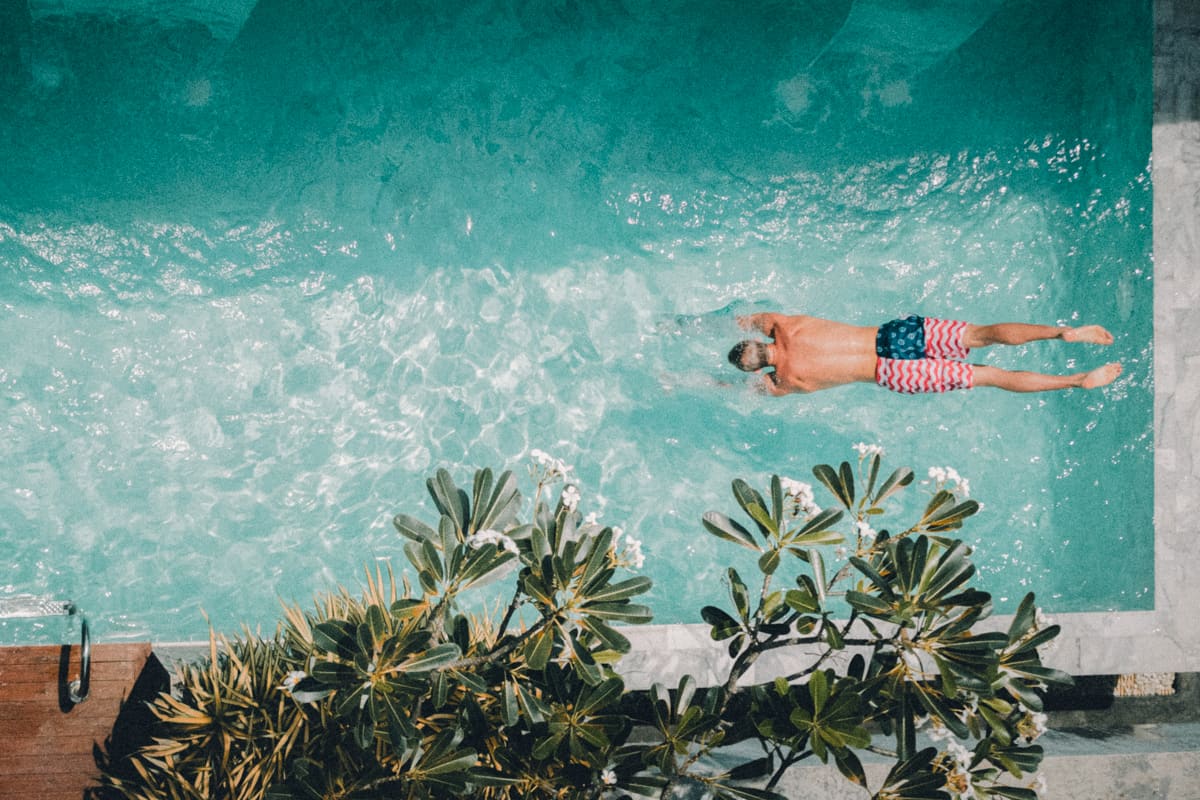What are we, if not a collection of our memories? Think about it for a moment—all the reasons you are who you are is based on moments throughout your life. How parents and caregivers treated you, the relationship with siblings, grandparents, and friends. The impacts teachers, coaches, or club leaders made in your life. Places you visited, where you attended school, a first love, a first hurt. These experiences, this vast cumulation of prismatic flashes, have traveled like branching lightning bolts through the neural connections in your brain, creating long-term memories. And those memories have shaped who you are.

Magical Moments of Travel
Now, let’s try an experiment: What’s the earliest memory you have of the beach? Is it the sound of seagulls? The sensation of sand pulling away from beneath your feet as you stand at the water’s edge? Jumping waves?
When you recalled the moment that was special for you, did you feel it? Could you hear the sounds associated with the memory? Why, out of all the immeasurable experiences stored in your brain, were you able to recall visiting the beach?
Now, if you’re a parent, or have young kids in your life, think about the moments kids talk about. Chances are, it wasn’t the elaborate beach bonfire with professional musicians hired for the last night at the beach. Nope, it was when they took a half-melted marshmallow and tore tiny pieces off to feed to the ghost crabs skittering along the shore. Or when they chased crabs with flashlights and tried to scoop them up in long-handled nets.
Those little, unexpected moments that happen on vacation are magical. And, it turns out, researchers are finally beginning to understand why. The short version? Travel + surprise + fun + sensory-rich = lifelong memory. It turns out there’s meaning and value in spending time together, discovering something new.
The longer version?
Researchers in neurobiology at Harvard Medical School studied the hippocampus (located in the bottom middle portion of the human brain) and learned new experiences activate sparse groups of neurons and interneurons, allowing them to link together. This sudden, flashing moment, triggered by the new experience, may be how our brains “encode” these moments. That’s the branching lightning bolt, firing off in your brain, forming memory connections!


We all know travel is associated with a host of new experiences that often lead to surprises. New landscapes, different architecture, food, language, and even dramatic temperature changes can be experienced, depending on the destination. What about snow skiing? Have you ever been? If so, do you remember the rush of fear and excitement as you faced your first bunny slope? The crunching sound the snow made underneath the ski boots?
But why bother, since young children aren’t going to remember these new experiences? Well, it’s a bit more complicated than that. Researchers say children categorize and form memories differently than adults. They use the term “childhood amnesia” to explain why children (and adults) can’t typically recall events from before the age of 2. Nora Newcombe, PhD., a psychology professor at Temple University, explained memory falls into two groups for children: explicit memory and implicit memory. Explicit memory usually involves a time and place (stopping for an ice cream cone after church on Sunday). While implicit memory is the emotional connection to the memory (seeing Rocky Road ice cream at the grocery store brings back happy memories of eating ice cream after church on Sunday).
In her study, “Two rooms, two representations: Episodic-like memory in toddlers and preschoolers,” she found that children couldn’t recall the location of a toy (with a visual prompt) until the age of 2. It wasn’t until age 5 that children mastered the task. While explaining the results of her study to the University’s Temple Now publication, she said, “Episodic memory is important for social interaction. It’s also important for parents and teachers to understand that even if their toddlers and preschoolers don’t remember that field trip to the zoo, they have still learned from the experience of seeing the animals.”
And thanks to implicit memory, any sensory-rich experience—freshly baked bread at grandma’s house, the smell of hay from the zoo—are intrinsically linked to memory for two reasons, according to Kei M. Igarashi, an anatomy and neurobiology assistant professor at the University of California, Irvine.
Reason one: our hippocampus sorts information based on the five senses (taste, smell, sight, touch, and hearing). Reason two: dopamine helps form memories. So, if smelling that delicious bread made you happy when you were little, chances are the scent of freshly baked bread will bring back memories of grandma years later.
And even if your child is too young to remember catching fireflies in a mason jar while vacationing in the Smoky Mountains, you will. And you can share stories about it with them. How you remember how they held the jar ever-so-gently or how they laid down in the grass to study the brilliant light show right in front of their eyes. How you eased the top off the jar, and the two of you laughed and clapped as the fireflies disappeared into the woods around you.
Even if your 3-year-old daughter doesn’t remember pelting her dad in the face with a snowball, the family might still be sharing that story and laughing about it years later at Thanksgiving dinner. That’s the magic of memory. These moments—these sights and sounds and smells—become woven into the fabric of our family. And then become intertwined with all the other events that shape who we are.
By trying new things together and embracing little adventures (no matter how small!), we set the stage for kids (and ourselves) to feel safe, loved, and cared for. And that is magical.



